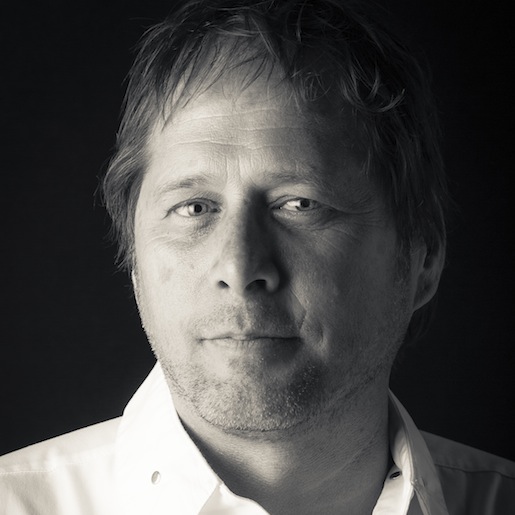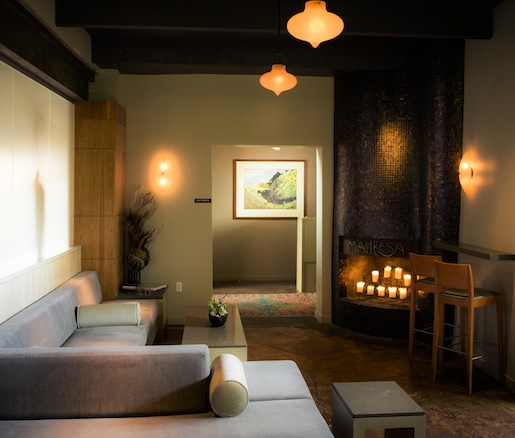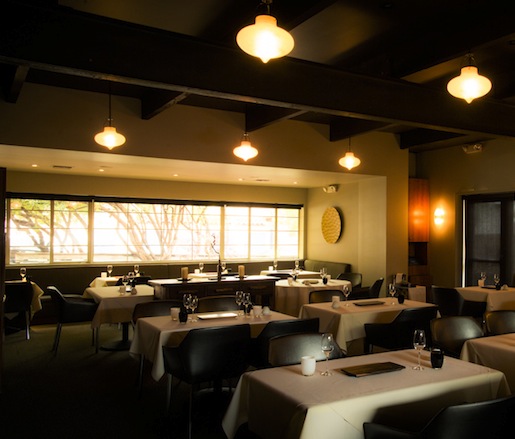Interview with Outstanding Chef Award Nominee David Kinch
Elena North-Kelly
Elena North-KellyApril 18, 2014

Critically acclaimed for his inventive, Michelin-starred California cuisine at Manresa, David Kinch has followed his 2010 Best Chef: Pacific win with three straight Outstanding Chef semifinalist nods. Here, the 2014 JBF Award nominee tells us about his new cookbook, a recent food-filled jaunt to Japan, and where he finds his inspiration to continue evolving as a chef.
JBF: What’s your favorite item on the current Manresa menu?
David Kinch: Our menu changes before you can get really comfortable with any particular item. However, at the moment, we have these tiny, sweet carrots served in an Asian-style beef broth with toasted buckwheat and breadcrumbs that I’m very fond of.
JBF: Can you tell us about your recent cookbook, Manresa: An Edible Reflection, and the inspiration behind it?
DK: Manresa will be 12 years old this coming July, and it’s only now that I felt the urge to write a book. I wanted to avoid just a collection of recipes, because I truly wanted to be able to convey our whole story, told through narration and compelling photographs. It’s really a souvenir or snapshot of the Manresa experience, and it also speaks to our relationship with local farms and how that dramatically changed the scope and direction of the restaurant.
JBF: Speaking of which, the new documentary The Farmer & The Chef explores your relationship with Love Apple Farms, who exclusively grows all your produce and provisions using biodynamic and organic principles. Can you tell us more about your partnership?
DK: It wasn’t a local, organic, or biodynamic statement, but rather a decision about control and quality of the products we bring into the restaurant. It’s been a really wonderful, symbiotic relationship. Cynthia Sandberg, who runs Love Apple Farms, has benefited because she hasn’t had to worry about the sales or marketing aspect or doing anything other than what she really truly loves—farming, growing, and gardening. And I don’t have to worry scouring the market place for purveyors and I can focus on what I love doing, which is cooking. It just dovetailed really nicely between the two of us.

JBF: You also offer the Manresa Bread Project, where you sell the same bread offered at the restaurant at local farmers’ markets, and we’ve heard whispers about plans to open a bakery. Any progress on that?
DK: We just expanded the Manresa Bread Project to a second market and will probably be starting at a third location in May, due to demand. We’re really proud of our bread, and we initially went to a farmers’ market to gauge interested and it just sort of went viral. It’s been so popular that it’s sometimes difficult to keep up with production, so the natural next step would be a brick and mortar bakery and retail location. That’s the ultimate dream, but nothing’s been determined yet.
JBF: What else do you see in Manresa’s future, and what inspires you to keep evolving as a chef and restaurateur?
DK: I’m not going anywhere. Manresa is my home. The season changes every three months and it’s a whole new ballgame with the menu, which keeps me happy. There’s always something new and exciting, and always an opportunity to evolve. The reason I like coming to work is that I love feeding people and making people happy. I still get a tremendous amount of satisfaction to this day.
JBF: Tell us about the last great meal you ate.
DK: I just came back from an amazing and inspiring trip to Japan. I had several meals in Tokyo that were on a benchmark level for me in terms of inspiration and pleasure. They do incredible things with young, tender spring vegetables that they hold in high regard—fiddlehead ferns, bamboo shoots, fukinoto, and lots of very tender, little greens.

JBF: What’s your earliest food memory?
DK: I remember going to a family reunion in central Pennsylvania at age 6 or 7, eating a steamed clam for the first time, and thinking it was the single most exotic thing I’d ever tasted. And, at the time, it certainly was. It was warm and juicy, tasted like melted better and seawater, and it left amazing impression on me.
JBF: How old were you when you knew that you wanted to be a chef?
DK: I was 15 years old. I’d started working in restaurants in New Orleans, where I grew up, and I was enamored with cooks. They seemed like their own separate tribe—slightly profane, working with fire—and I wanted to be a part of that amazing, vibrant food culture.
Elena North-Kelly is associate editor at the James Beard Foundation. Find her on Twitter and Instagram.






